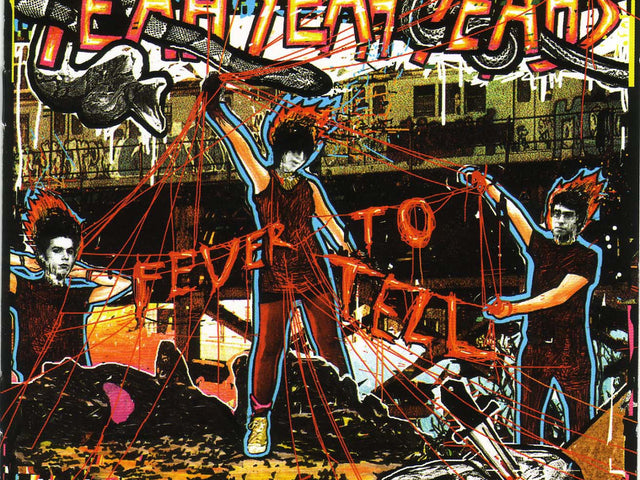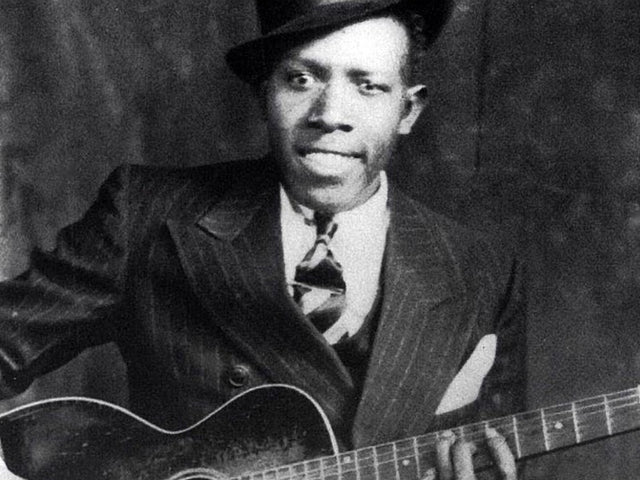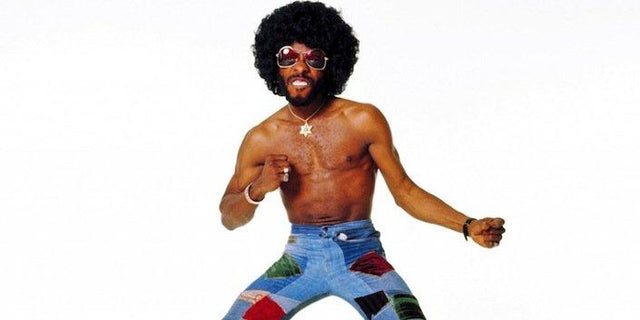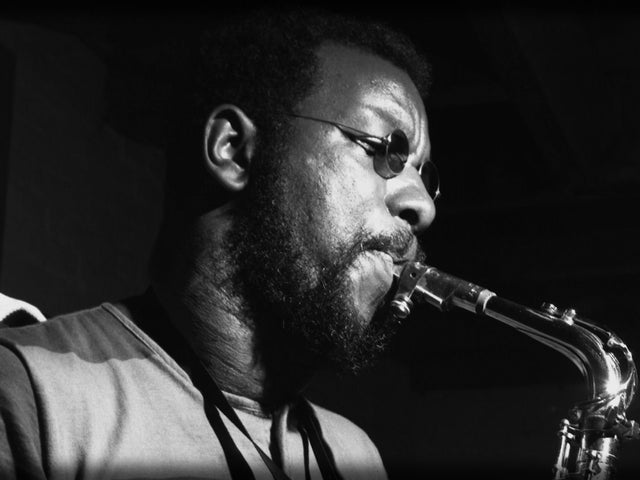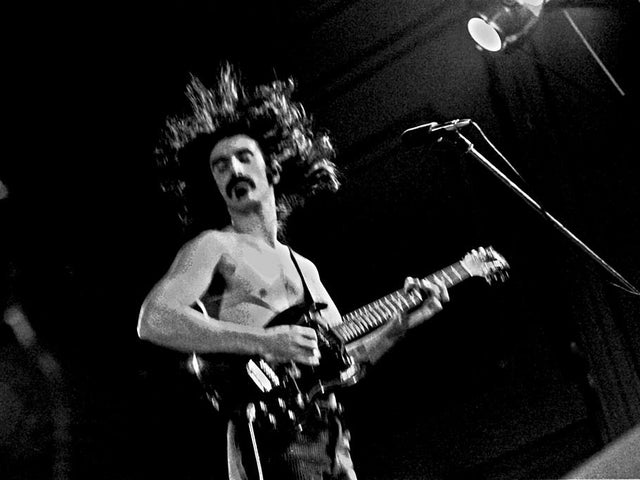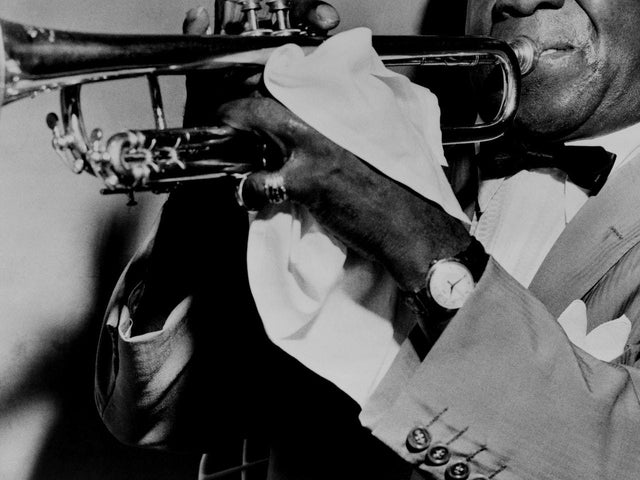10 Album Emo Terbaik yang Harus Dimiliki di Vinyl
Emo mungkin adalah genre musik yang paling nostalgik: kelembutan “Hati di lengan” dicampur dengan serangan sonik. Rasa sakit, konflik, ketidakamanan, dan ekspresi emosional yang mengakui bahwa menjadi stereotip yang terkait dengan mode, budaya, perilaku, sensitivitas, rasa malu, misantropi, kecemasan, introversi, penyalahgunaan diri, bunuh diri, dan semua omong kosong tidak masuk akal yang dikatakan oleh para kritikus. Beberapa band emo menolak merek itu untuk menghindari keributan (mungkin ini adalah langkah yang cerdas!). Meskipun semua band buruk yang diciptakan oleh emo, beberapa band dalam genre ini benar-benar hebat dalam memainkan rock ‘n’ roll. Dan anak mana yang sedang waras yang tidak membeli kaos band di Hot Topic 16 tahun lalu? Toko tersebut hanya memiliki sekitar 500 di pameran.
nAkar emo berada di punk dan post-hardcore, yang berasal dari Washington D.C. pada pertengahan 1980-an melalui intensitas luar yang ditunjukkan oleh band-band punk seperti Rites of Spring dan Minor Threat. Tidak, jangan pernah beri tahu orang-orang bahwa dua band ini adalah emo; Anda akan mendapatkan tendangan ke wajah dengan alasan yang benar. “Emo” entah bagaimana menjadi istilah — punk rockers menjadi secara berlebihan emosional di atas panggung — disebarkan dan akhirnya menjadi seluruh skena dramatis. Setelah diteliti, “emo” pertama kali dicetak di New Musical Express pada tahun 1995. Ketika pahlawan punk legendaris Ian Mackaye melihat “emo-core” ditulis dalam edisi Thrasher pada tahun 1985, ia berkata bahwa itu adalah “hal terbodoh yang pernah saya dengar dalam hidup saya.”
nGenre yang terkait dengan Emo: pop punk, indie rock, emo pop, screamo, dan Midwest emo (eh?). Long Island, NY dan New Jersey menjadi pusat untuk emo, tetapi hanya sedikit yang bangga berhias dalam daftar ini. Akhirnya disponsori oleh perusahaan besar dalam tur nasional, genre ini mulai menjadi kenangan yang jauh sekitar tahun 2010; pendengar dan pemain mulai tumbuh menjadi orang dewasa yang terhormat. Hingga baru-baru ini, ketika band-band revival bawah tanah — seperti Hotelier, Touche Amore, Joyce Manor dan The World Is A Beautiful Place & I Am No Longer Afraid To Die — menggali semua nostalgia, mengingatkan pendengar emo sebelumnya mengapa genre ini bisa terasa begitu bermakna untuk didengarkan jika Anda mengikuti band yang tepat. Pembawa obor Brand New (yang sekarang dicoret dari daftar ini karena tuduhan kelakuan seksual yang menjijikkan terhadap Jesse Lacey), Thursday, dan Glassjaw masih ada, saat emo dihargai seperti tidak pernah sebelumnya.
nSebelum kita mulai menangis tentang semua kenangan yang dikuburkan, berikut adalah klasik emo yang harus dimiliki. Ini akan menyakitkan, tetapi terutama secara lirik.
The cult following of Jawbreaker in the 1990s can be summed up when you take the Bivouac record sleeve out of the jacket and flip it over. What you see is a sequence of excellent live photographs by Jennifer Cobb; one of her shots catches a fan, thumb up and smiling, addressing the camera with a “We ♥ Jawbreaker” sign. With breakdowns so spectacularly heavy, the three men of Jawbreaker were the soldiers of Emo.
When Bivouac is spinning, it feels like you’re at one of their sweaty shows; you might get spat on. In the early 90s, it was “Nirvana this” and “Nirvana that,” but, hello, it’s Jawbreaker down here; they were on the same level. Jawbreaker left it burning, counted the dead, bent strings, and shredded the skin of blown amps. When you light that “Chesterfield King” cigarette and hear the bass drum of thunder, you’ll know what I mean.
During one of Sunny Day Real Estate’s early shows in Seattle, the music made a Sub Pop employee cry. That may have been enough reason for Bruce Pavitt and Jonathan Poneman, owners of Sub Pop, to take a chance on Sunny Day and offer the band a contract. Sunny Day hit the ground running, releasing three outstanding albums in four years’ time, starting with the crusading Diary in 1994.
Comfortable to live in, Sunny Day made balanced alternative rock. Diary steams like burnt toast, but has little nuances like tiny guitar strums in the din, a slight tap on the top of the ride cymbal, or reverberation on the snare. The first three tracks — “Seven,” “In Circles,” and “Song About an Angel” — are the first three songs Sunny Day ever worked on; not many albums have the ability to suck the listener into the beautiful proceedings like Diary does. Emo is known for the soft/loud dynamic, and Sunny Day is influential with songs like “48” when a mudslide of drum hits unchains into pearls that steal the truth. Jeremy Enigk is a wonderful singer, extending words in the right places, and he never gets too whiny. Diary is most impressive; maybe the most striking fact is having no fluff over a run time that surpasses 50 minutes. The 2009 reissue has two bonus tracks — red on the table, magenta when you hold it up to the light. Guitarist Daniel Hoerner says that these lyrics from “Grendel” are the encapsulation of Sunny Day Real Estate: “the rain was there to wash away my tears/I wanted to be them but instead I destroyed myself.”
Don’t judge this album by its title; the music feels good. Produced by J. Robbins of Jawbox, Nothing Feels Good gained a following because Emo usually is not this fun. Impeccable swing, bright, and clean, The Promise Ring was a precursor to the Dismemberment Plan. Davey von Bohlen (vocals, guitar) may have never wrote perfect lines, but he sure does pack a lot of lyrics within a two-minute window.
On the title track, Bohlen doesn’t know God, doesn’t know anyone, and doesn’t know if anything will be all right. He doesn’t know Billy Ocean, or the ocean floor. Bohlen doesn’t go to college anymore, and he doesn’t own any albums. Hailing from Wisconsin, the Promise Ring has lyrics about places that are far from America’s Dairyland — Delaware, Philadelphia, and Bethlehem; maybe they dislike the homeland? The songs of Nothing Feels Good bleed into one another, some heavier than others; this is not a heavy album. But it is catchy as hell. Sentimental and potent, Nothing Feels Good exudes imagination. It might have the most momentum of any record here.
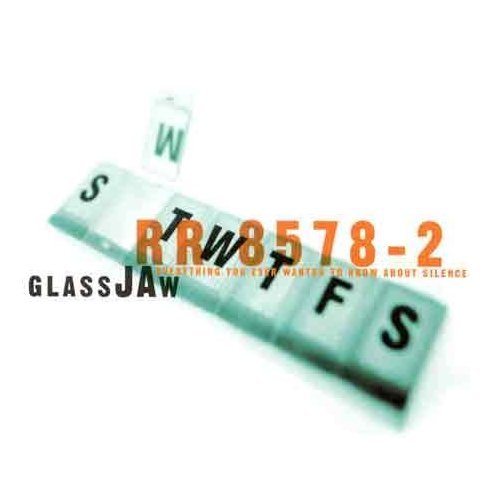
Absolutely brutal. Daryl Palumbo, suffering from Crohn’s Disease — some of the vocals were recorded while Palumbo laid in a hospital bed — had dealt with enough unfaithful people in his life that he was able to fill up an entire LP about those empty experiences. Before or after Everything You Ever Wanted to Know About Silence, I’m not sure if anyone has ever swore this much on lyric sheets, shredded as many vocal chords, or exerted as much disgust toward promiscuous people. Sounding a lot like hardcore, Glassjaw’s debut presented a new, unexpected breed of emotion with subversive guitars and slight sarcasm.
Seeming shorter than its 51-minute run, EYEWTKAS relentlessly stabs and crunches, save for slow parts during “Her Middle Name Was Boom,” “Piano,” and the agonizingly important title track. It’s like a wasp’s nest is exploding while Palumbo boogies in the madness. It’s too easy to read the lyrics as misogynistic (“you can lead a whore to water and you can bet she’ll drink and follow orders;” “I hope you enjoy dying alone;” “the way you fucked his life is such a big disguise we swear;” and “get up off your knees and make me your God”), but Palumbo says the words stem from being hurt by terrible people. EYEWTKAS is the best thing Glassjaw ever wrote; it still sounds like a goddamn beast. Palumbo can sing and scream with the best, and the way he shrieks “who you fucking now?” at the end of “Lovebites and Razorlines” is one of the better vocal turns you’ll ever hear.
Instantly recognizable, Bleed American was Jimmy Eat World’s DIY answer after being dropped by Capitol Records. Whether or not the band got down on itself, Jim Adkins and his boys teamed up with producer Mark Trombino, and pushed forward with a classic for listeners who enjoy rock music. “With one hand high,” Adkins resonates on epic conclusion “My Sundown,” “you’ll show them your progress.” Released five weeks before 9/11, the album is about The American Way: everyone wants more than what they have. But at the end of the day, everyone falls asleep.
Jimmy Eat World was on its game, rolling out the hits and dabbling in experimentation (Trombino is playing a “magic box” on “Cautioners,” almost an electronic song). You’ll clap your hands (“The Authority Song”), get chills down your spine (“Hear You Me”), melt (“Your House”), head bang (“Get It Faster”), and possibly find a track for your wedding playlist (“If You Don’t, Don’t”). Accessible enough to land a song (“Sweetness”) on the soundtrack for NHL 2003, but angelic enough to be totally original, Bleed American is insanely smart. It’s an ode to the inspired. Enjoy life, go to a show, and pump your fist.
The Ugly Organ hasn’t been duplicated, and it probably shouldn’t be; it’s brilliant in an alienating way. Cursive, part of Saddle Creek folklore, is a weird band that strikes an interesting chord, throwing a thousand ideas into the mixer. The Ugly Organ is a frantic, awesome mess. Tim Kasher is his usual fast, rejected frontman; Gretta Cohn provides exuberance with a cello; and the 13-member “Staying Alive” Choir includes Conor Oberst. Sweetheart Jenny Lewis sings on three songs! I stare at a wall; I stare into my coffee cup.
Naming a song “Art Is Hard” for an album this restless speaks volumes. The recording sessions must have been crazy. But The Ugly Organ has more soft/slow/sweet parts than it seems — strange whispering, “The Recluse,” guitar and cello acting as cousins, and plenty of melodrama. Even though Kasher’s ego shits whatever he feeds it, he can sing really well when he puts the full effort in. Cursive’s fourth LP is queasy — makes you look over your shoulder — but we all need cleanse from time to time.
Listening to this album 14 years after its release, it is a little over the top. Although, it could be argued that this list would be incomplete without Three Cheers for Sweet Revenge, which went platinum within 365 days of existence, eventually selling over one million units. Not that there is one million vinyl copies of Three Cheers, but, hey, give them hell, kids. My Chemical Romance is playing glamorous punk music at a very high speed; it’s an exhausting affair. This shit is juiced, man. Gerard Way is screaming as though he has 17 knives in his back. My Chem made a deal with the Devil, and they burned through a thousand guitar strings.
Had Queen been furiously insane, they might have made a record like Three Cheers. Extreme grief notwithstanding — “at the top of my lungs in my arms, she dies” — and despite all the alcohol and cocaine that almost killed Way, My Chemical Romance made something powerful. It’s hyperkinetic cinema shot through a rail gun.
Conceptually heavy with images of death, self-inflicted pain, and negativity towards the chest cavity, Saves The Day recorded upbeat jams that should be homework for any band trying to play pop punk. Sound the Alarm needed all these great hooks; the bands previous album (In Reverie) sold poorly, causing their label (DreamWorks) to slice up their contract. Saves The Day spent most of their money, vocalist/guitarist Chris Conley locked himself away to write songs, and Sound the Alarm saved a career with neat little packages that pack a punch. Steve Evetts (known for producing all the ridiculous Dillinger Escape Plan albums) gets a gold star for one of the most amazing bass guitar recordings that I have ever heard.
Conley’s childish voice is inviting, but what he’s saying — no matter how bouncy the instrumentation gets — drapes Sound the Alarm in disaster: “I feel like swallowing my eyes;” “cut off my legs when you tell me to walk/slit my own throat when you say to talk;” “I took a wrench to my chest, broke all my ribs;” “I’ll dig my grave and wait here for you to realize;” “cause paranoia is the only friend that I know;” and “put cyanide into the water pipes.” Conley might be ill, but nobody can sing the line “to eat my face” any better. And we need those hellish guitar leads, like the one on the title track. Of course, “everyone you know will someday die,” but at least Sound the Alarm lives on.
The infamous Dave Fridmann helped Thursday be the band it always wanted to be — textured, spacey, and absolutely professional. Starting with A City by the Light Divided (2006) and concluding with No Devolucion (2011), Common Existence is the effervescence of Thursday’s second chapter. Rising like skyscrapers, the music is loud enough to fill stadiums, but meditative enough to take in while lounging on the couch. The bass and drums race; the sunshine blasts through the window.
“Resuscitation Of A Deadman” is an engaging opening track, just like “Understanding in a Car Crash,” “For the Workforce, Drowning,” and “The Other Side of the Crash” were before it; Thursday knows how to pull listeners into their albums. Common Existence unfolds its beautiful madness “with heart attack efficiency,” Geoff Rickley sings. From the rapid snare hits of “As He Climbed The Dark Mountain” to the rewinding tape ambience of “Time’s Arrow,” there is a lot to get lost in. The whirlwind of noise can surprise like broken glass, and the electronics can cut like crime; Rickley is just sick of all the dead soldiers with mourning mothers. “Old record running down, we’ll flip it over and sing the songs we’ve never heard.” The circuits of your record player are on fire.
From the same habitat of popular Emo show spot The Palladium, The Hotelier brought awareness back to the genre with this universal release through Tiny Engines, which used to be the home of Beach Slang and Restorations. Transformative, damaged, and brooding, Home, Like Noplace Is There has a proper introduction filled with 288 words. Christian Holden’s emotional voice swells until he just loses it (“what the fuck do I know?”). The harmonies on the album are great, but the depressive lyrical matter falls like bricks from five stories high.
The first half of Home, Like Noplace Is There is rather sublime; out of left field, The Hotelier gets edgy and aggressive. “You wore the binary like a badge of fucking honor” — Holden is screaming. The Hotelier has the true Emo dynamic: sad lyrics, musically uplifting. They have real power. Holden says that he’s “tearing up pieces of old news,” but him and his band brought solidarity back to the genre. Not many albums get a Metascore of 91; Home is an Emo trope.
Jordan J. Michael believes that music (especially in vinyl form) is the key to happiness. He enjoys all genres, but doesn’t listen to anything nonsensical. He is known to do some ‘Gonzo shit,’ and is a New York transplant living in Chicago.
Bergabung dengan Klub!
Bergabunglah sekarang, mulai dari 44 $Diskon eksklusif 15% untuk guru, mahasiswa, anggota militer, profesional kesehatan & penjaga pertama - Verifikasi sekarang!
